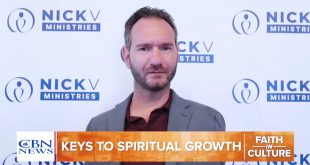ANALYSIS
One social media commentator once observed, “You aren’t truly famous until you are a meme.” That’s the hard lesson learned by one unsuspecting pair at a recent Coldplay concert in Boston.
By now, we all know what happened – a Kiss Cam meant to celebrate romance instead revealed discomfort: a couple froze, he ducked, she turned away and frontman Chris Martin couldn’t resist joking, “Either they’re having an affair or just very shy.”
Quick internet sleuthing identified the man as Andy Byron, CEO of Astronomer (valued at over $1 billion), and the woman as Kristin Cabot, his Chief People Officer – each married to other people. The footage went viral almost immediately. The memes followed in minutes.
But beneath the digital snark and global mockery, something significant happened. People cared. People were outraged. And that, my friends, is a good thing.
Indeed, the tech CEO lost his job as a result. The moral outrage in response to this public act of infidelity is a cultural signpost and I hope, a warning to many husbands and wives across America. It reminds us that adultery is still taboo – as it should be. That taboo isn’t some outdated relic; it is a moral boundary that helps preserve the sacredness of marriage and protects the stability of the family and all the benefits that it brings.
Over the past generation, marriage has shifted from being honored as a societal anchor to a private ‘lifestyle’ with optional public respect. Divorce rates soared, cohabitation became normal, children increasingly grow up apart from their biological parents and the very institution of marriage is often treated as disposable. That decline isn’t just statistical – it’s spiritual, emotional and economic.
For much of our history, Americans understood this intuitively. Adultery wasn’t just immoral – it was illegal. Until fairly recently, most states had laws on the books making adultery a criminal offense. Why? Because marriage was seen not just as a vow between two people, but a public good worthy of legal and cultural protection.
That understanding is still embedded in our legal system today. In states like North Carolina, civil statutes on “alienation of affection” allow spouses to sue individuals who interfere in a marriage. That may sound archaic, but it underscores a timeless truth: adultery is not a victimless crime.
Families pay the price. Children, spouses, parents and even entire communities can be shaken when one person breaks their marital promise. And let’s not pretend those vows are ever truly private. Whether you say “I do” in a grand cathedral or at a Vegas chapel with Elvis officiating, the law still requires witnesses. Marriage, by its nature, is a public declaration with public consequences.
Marriage is a force for societal good. Countless studies show marriage – especially a stable, committed, lifelong marriage between a mother and father – provides children with their best life chances: higher educational attainment, emotional stability, resilience, and reduced poverty. As for adults, Dr. Brad Wilcox’s recent research shows the happiest men and women in America are married people with children.
Yet today, Kiss Cam embarrassment can overshadow those truths with viral memes and laughter, forgetting the families that are left destroyed. Let’s remember the taboo highlighted in this viral scandal is fueled by American society’s strong and correct moral preference for love and fidelity.
This viral Kiss Cam moment is a cautionary tale, not just for the man at the center of it, but for all of us. Nor is his and his lover’s plight unique to a successful CEO of a tech company or a high-flying corporate executive. It’s a sobering reminder that no one – no matter how successful or powerful – is immune to temptation or above the fallout of bad decisions. From what we can infer, this man likely worked a high-stress job, spent long hours away from home and made a devastating choice that may well unravel his family.
But here’s the hopeful part: infidelity isn’t an inevitable part of marriage nor do mistakes have to be fatal to that union. With support, effort and grace, marriages can heal – even after heartbreaking betrayal.
One pastor I partner with in marriage and family ministry told me recently that strategies we shared helped three couples in his congregation who had experienced infidelity find healing and forgiveness. In recent weeks, more than 50 couples reported on exit interviews that their marriages have been saved.
It’s stories like these that should give all of us hope. Because it’s easy to shake our heads at the man and woman on the Kiss Cam. But it’s much harder – and far more essential – to reflect inward and ask: How am I investing in my own marriage? Marriage isn’t maintenance-free. There is no marriage Roomba to help effortlessly cleanse your relationship mistakes. It takes prayer, effort, time and humility. We don’t pretend marriage is easy. But we do believe it’s worth fighting for.
The viral moment at the concert will fade from the front page and our social media feeds. But the fallout for that man’s family is only beginning. Let it remind us of what we already know deep down: that marriage matters. That families matter; and that when we protect the sacred bond of marriage, we are not just safeguarding a couple – we are strengthening the foundation of society itself.
J.P. De Gance is the founder and president of Communio, a nonprofit ministry that trains and equips churches to share the Gospel through the renewal of healthy relationships, marriages, and the family. He is the co-author of “Endgame: The Church’s Strategic Move to Save Faith and Family in America.”
Source link



